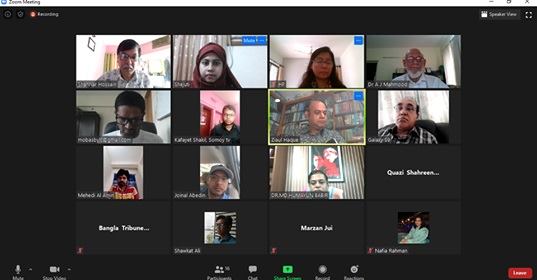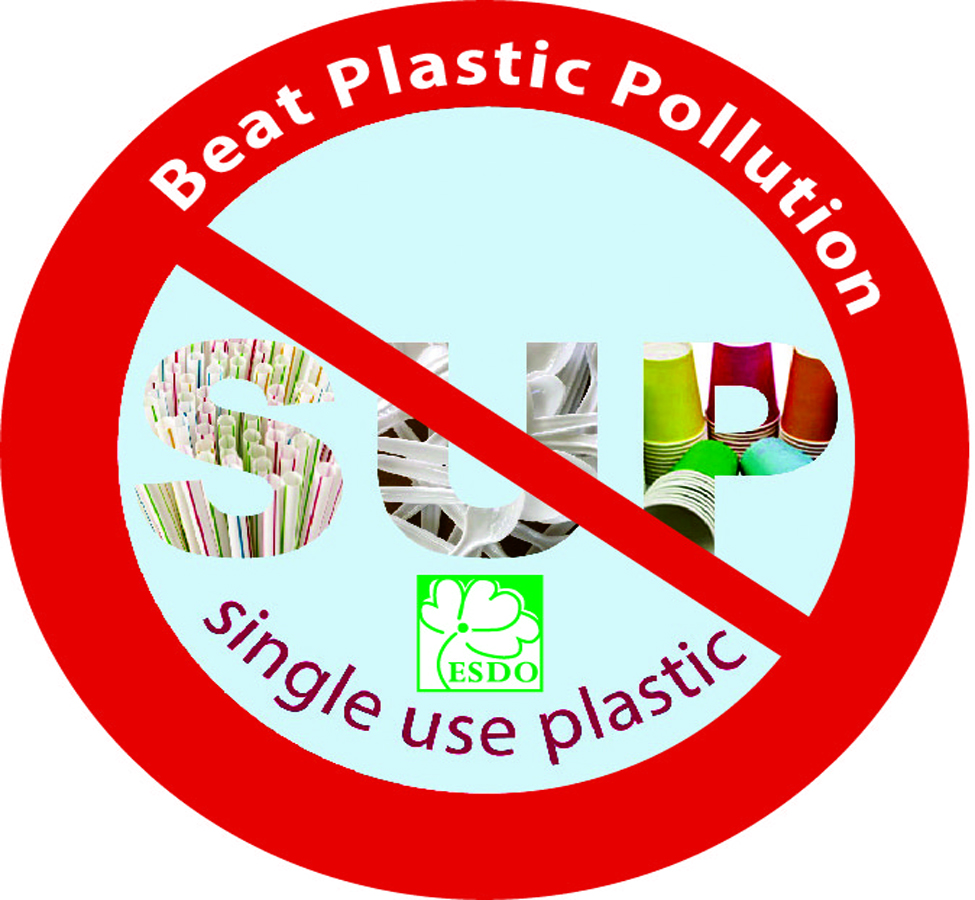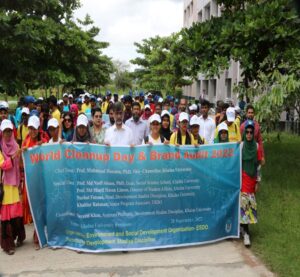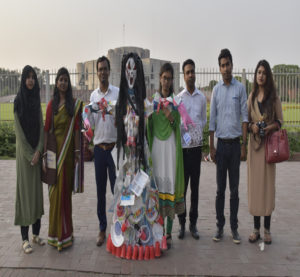Dhaka, 10 May, 2020: The hygiene measures to avoid Novel Corona virus infection are recently making a huge consumer base for single use plastic commodities. In the first month of official lockdown to prevent Corona virus outbreak in Bangladesh, around 14,500 tons of hazardous plastic waste has emerged from the use of single use surgical face masks, hand gloves and polythene bags in communities, hospitals and other health care facilities.
ESDO has conducted a Study on these facts titled “COVID-19 Pandemic Pushes Single Use Plastic Waste Outbreak: No Management, No Protection: High Health and Environmental Risk Unveil”, which focuses exclusively on hazardous plastic waste emerging from the use of single use plastics protective gauges in communities and health care facilities. The findings of the study were disclosed through a press briefing arranged virtually by Environment and Social Development Organization at 11.30 am today.
Study emphasized that; improper disposal of these hazardous COVID-19 plastic wastes can cause massive environmental pollution including soil, water and air. Study predicted to speared others infectious disease as well. People working with waste management system are in direct risk of catching the infection and spreading it further due to lack of proper protective measures.
According to the study, in the first month of the official lockdown to prevent COVID-19 spread in Bangladesh, The use of polythene and plastic shopping bags at community level has been growing at an unprecedented rate than ever. An estimated 455 million surgical masks have been used by the entire population during the last one month giving rise to an estimated 1592 tons of disposable plastic waste. Polythene shopping bag has been identified as the largest source of single use plastic waste generation in Bangladesh during the ongoing COVID-19 response phase accounting for about 5796 ton of plastic waste in a single month. Use of polythene has increased many folds in communities as people tend to buy food items in polythene covers to protect them against infection. Polythene bags are also being used largely for relief distribution and takeaway food packaging purposes. Alone in Dhaka generated COVID-19 related single use plastic waste around 3076 ton. More than 443 tons of polythene shopping bags waste generated by shred of communities and distribution of relief items among the poor and the distressed in polythene packets.
During the time of COVID-19 spread, growing tendency of using disposable hand gloves has become evident both in urban and rural areas of Bangladesh. Two different kinds of hand gloves are being used by people – polythene made hand gloves and surgical hand gloves. City dwellers and street vendors in urban areas are, apparently, the major users of single-use hand gloves made up of polythene. Alone from this source, an aggregated 1216 million gloves have been disposed by the population in the last one month referring to the generation of an estimated 3039 ton of disposable plastic wastes. Of this, nearly 20% emerged from the capital city alone. An average 9% of the population around the county has also been found to be using relatively heavy weight surgical hand gloves.

Press briefing was attended and responded by Professor Dr. Abu Jafar Mahmood, Principle Technical Advisor, ESDO; Md Ziaul Haque, Director of Department of Environment; Prof. Dr. Humayun Kabir Bulbul, Principal of Dhaka Dental College and Secretary General of BDS, Dr. Shahriar Hossain, Secretary General ESDO; Siddika Sultana, Executive Director, ESDO; and Assistant Program Officer Syada Mehrabin Shejuti, Assistant Program Officer and Nazma Ahmed, Sr. Program Associate of ESDO.
The study disclosed that the doctors and nurses in dedicated COVID-19 hospitals, who came in close contact with COVID-19 infected and suspected patients during the last one month had to frequently use and dispose surgical masks and gloves, along with other personal protective equipment. However, doctors in general hospitals have also been using masks and hand gloves as part of extended precautions. An estimated 250 tons of single use plastic waste has been generated from the hospitals during the last one month solely from the use of surgical masks and gloves by health professionals. However, sample testing pathological laboratories dedicated for COVID-19 testing has generated an additional 1.1 ton of singles use plastic waste.
Study intensively highlighted that, when a high volume of medical wastes gets generated within short time interval it becomes often impossible to segregate the waste and treat them before sending them to landfill or to incinerate. These chemicals are absorbed by plants which are later utilized by other organisms including humans which as a result can cause disease or even death. Improper waste disposal can also interfere with the food supply as plant growth is impaired reducing the amount of food produced.
It focuses waste collectors get directly exposed to hazardous plastic wastes during collection, handling and transportation of infectious wastes from sources to storage facilities. When the discarded plastic wastes are collected or handled by waste collectors or personnel in waste management facilities without taking protective measures, it may get them infected. Informal waste collectors in Dhaka are working without adequate protection with heightened risk of getting infection from hazardous wastes. An estimated 6000 plus informal waste collectors are associated with the municipal waste collection and management process alone in Dhaka.




